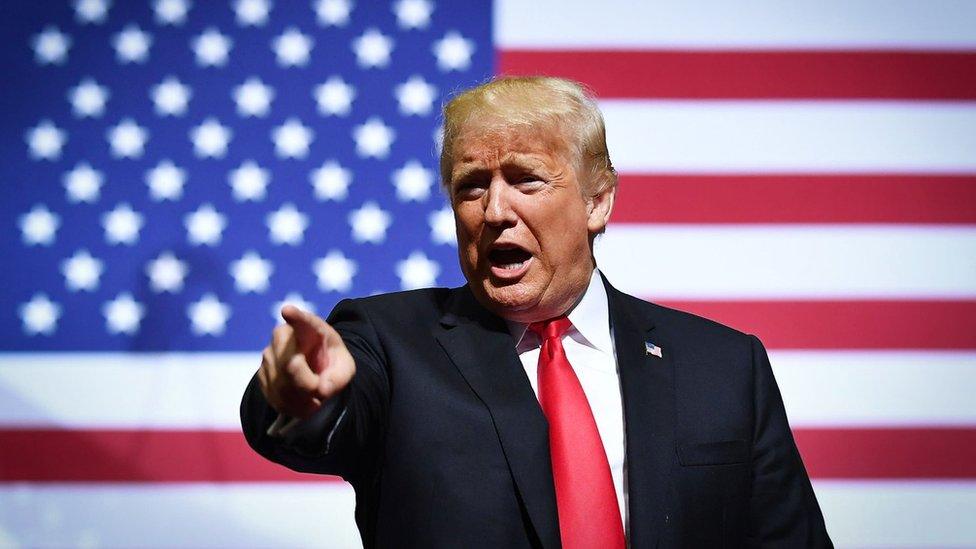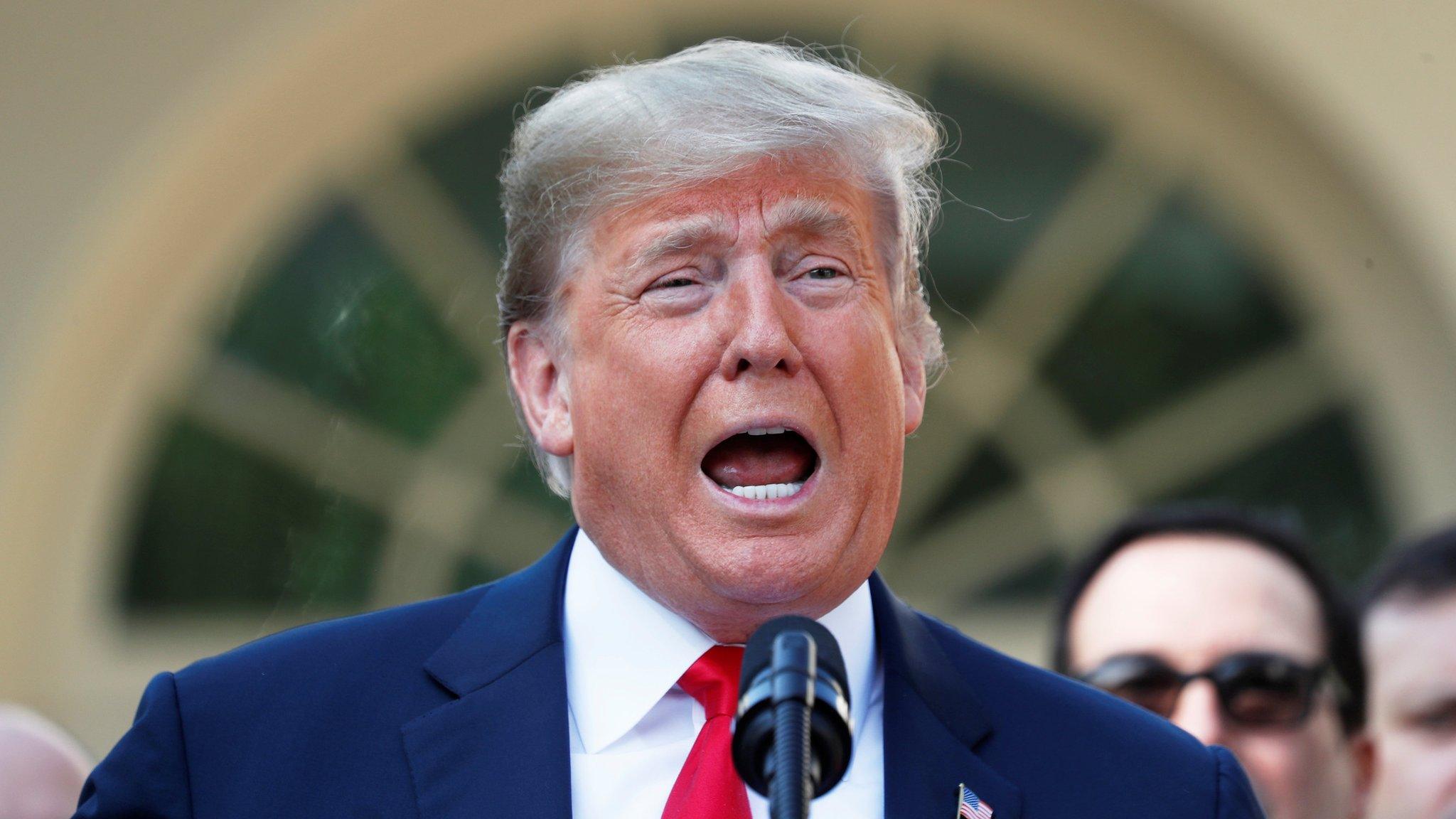Can Trump really cut the US trade deficit?
- Published

President Trump has finally got a three-way agreement to change Nafta, the North America Free Trade Agreement.
Canada and Mexico have agreed to reform the deal that originally came into force in 1994.
He certainly got some specific provisions in the new trade agreement with Canada and Mexico that he will regard as important achievements.
To name a few:
Cars will have to be 75% made in North America if they are to be transported cross borders duty-free - an increase from 62.5%
70% of the steel and aluminium will have to be North American, and 40% of the labour content will have to be paid at $16 an hour or more
Those provisions will make it harder to source components or materials outside North America. China is the obvious, though not the only, country likely to be affected.
There will be better access for American farmers to Canada's highly protected dairy market.
Politically, this is an important achievement for President Trump. Renegotiating Nafta was a priority for him when he took office.
He has described it as "the single worst trade deal ever approved in this country". The new one is "wonderful", he tweeted, external.
With the mid-term Congressional elections only a few weeks away, it is clearly helpful for to have something specific to show to the voters.
But there is a wider objective behind his trade policy.
The US has a trade deficit. It imports more than it exports and Mr Trump wants to change that. He wants to reduce the deficit with individual trade partners and with the rest of the world as a whole, or preferably eliminate these imbalances altogether.

A Ford worker on the F150 assembly line at the Dearborn plant in Michigan
He sees those imbalances as the result of unfair trade practices by other countries - notably China - and of trade agreements that are unfair to the US.
That has been behind many of his trade initiatives: pulling out of the Trans-Pacific Partnership; new tariffs on aluminium and steel imports; and tariffs on a wide range of imports from China.
It is impossible to judge the success or otherwise of this new agreement against the benchmark of whether it has changed the trade balance. It hasn't even had Congressional approval yet and will be several years before all the provisions come into effect.
But the approach begs a fundamental question: are trade imbalances the result of trade policies? It seems obvious that they would be, but that is not the view of most economists.
A report from the Congressional Research Service, external puts it like this: "The Trump Administration's approach contrasts with the views of most economists, who argue that the overall US trade deficit stems from US macroeconomic policies that create a savings and investment imbalance in which domestic sources of capital are not sufficient to meet domestic capital demands."
Or to put it another way, the counterpart to the trade deficit is that the US saves less than it invests.
Yet another way of putting it would be a country that spends more than it produces will have a trade deficit.

Global Trade

One way that a country can spend more (or save less) is if the government reduces taxes, or increases spending. If there is no offsetting change in private sector spending or investment, then lower tax revenue would mean a larger trade deficit.
Another way of looking at it: if people have more money to spend because they are taxed less, they will spend some of it on imported goods.
President Trump has cut tax rates on incomes and company profits. He expects the move to strengthen economic growth so much that it will generate more tax revenue. Views are divided on how realistic that hope is, but many economists doubt that it will work.
If he does end up increasing government borrowing, it would tend to boost the trade deficit. That is exactly the opposite of what he is trying to do with his assertive approach to trade policy.
The economic relationships - the questions of what causes what - are complex. So it is not necessarily the case that what he is doing is counterproductive by his own objectives. But it might turn out to be.
- Published1 October 2018
